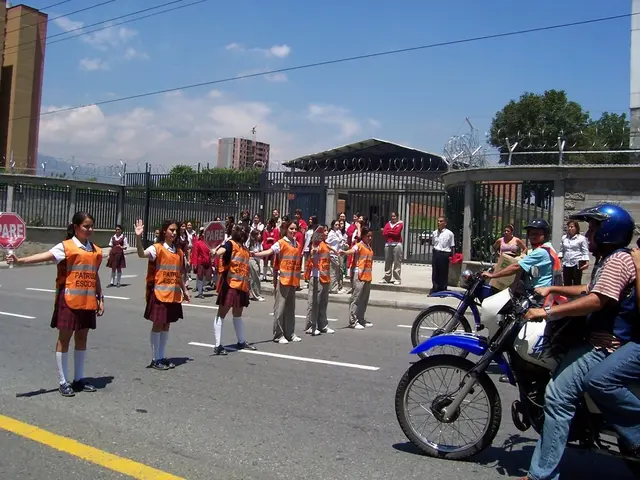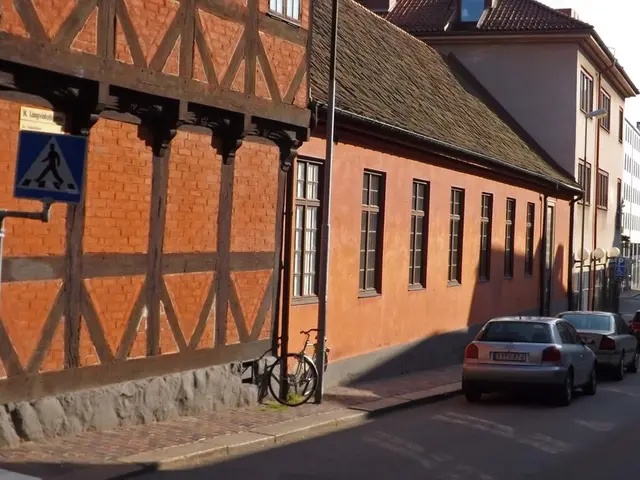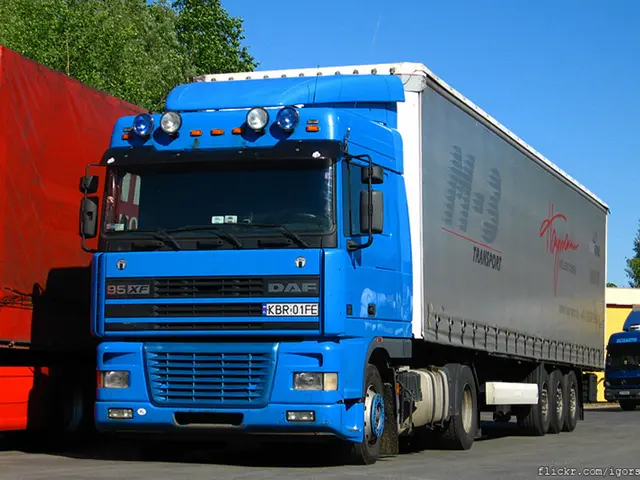Historic "Victory" Train Arrives in Altai Region
Stepping back in time: Experience the exhilaration of the post-war era as "Victory Trains" roll into Barnaul and Biysk
In preparation for the 75th anniversary of Victory in the Great Patriotic War, the retro "Victory Express" train, part of the L-620 "Victory Train" series, pulled into Barnaul on May 4. The Ministry of Transport of the Altai Territory revealed that this event isn't just about the iconic train itself—milestone-goers can relive those historic moments through interactive zones set up starting at 10 am on the station square. These zones feature a retro technology exhibition, photo zones, master classes, and a field kitchen, allowing everyone to immerse themselves in the genuine atmosphere of those triumphant post-war days. The "Victory Express" will remain in Barnaul until 2 pm.
Volunteers will also offer guests on the station square replicas of the original 1945 "Gudok" newspaper, reminiscent of the newspaper that circulated widely during that time.
"Barnaul's "KP" recalls that an incredible four thousand of these L-620 locomotives were produced from 1945 to 1955, contributing to railway networks across the nation. Designers of these locomotives, affectionately called "Lebedyankas," were awarded the Stalin Prize upon project completion. Today, you'll spot these beautiful steam engines gracing many railway stations and depots throughout Russia, including Biysk. The Lebedyankas have also become a staple in films, such as "Big Transfers," "Children of the Arbat," "The Twelve Chairs," and more. Remarkably, some of these steam engines are still in operation today.
Reliving History on Track: The debut of the "Victory Train" in Biysk
The "Victory Train" series holds a significant historical and cultural place, linking back to the Soviet Union's monumental efforts during the Great Patriotic War (World War II). These trains embodied Soviet resilience and defiance, symbolizing the country's industrial might and logistical capabilities that heavily contributed to triumphing over Nazi Germany.
During the Great Patriotic War (1941-1945), the Soviet Union faced tremendous challenges in transporting troops, weapons, and supplies across vast expanses, often under grim circumstances. Reliable rail transport was vital to the Soviet war effort, with specialized trains developed both to boost morale and ensure timely movement of war materials.
The "Victory Express" trains served as one such unique train in this mobilization, encompassing the spirit of Soviet determination and technological advancements. These trains were likely built post-war as commemorative and practical symbols, celebrating the perseverance and victory of the Soviet people and military.
In Russian culture, these iconic trains carry a profound symbolic importance, frequently utilized in exhibitions, museum displays, and public remembrances as reminders of the technological and historical legacy of the war period. They are recognized as emblematic symbols of Soviet resolve and triumph, holding an esteemed position within Russian collective memory.
The "Victory Train" series, with its presence in both Barnaul and Biysk, is a testament to the country's thriving post-war era financing, as the industry manufactured these trains, contributing to a nationwide network. In Biysk, the debut of the "Victory Train" honors the historical and cultural significance of the Soviet Union's robust transport sector during the Great Patriotic War, reflecting the nation's industrial might and stubborn resolve.








